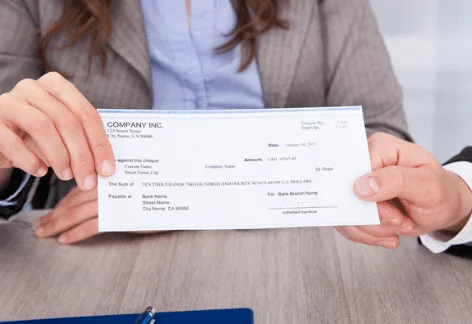*Last Updated January 6, 2021
The Paycheck Protection Program is aimed to keep workers on payroll during the current pandemic, but are PPP loans taxable?
The Coronavirus Aid, Relief, and Economic Security (CARES) Act was passed by Congress and signed into law by President Trump on March 27, 2020, and aimed, among other things, to provide assistance to small businesses through the Paycheck Protection Program (PPP).
Under the PPP, authorized lenders would be able to grant eligible companies loans meant to incentivize keeping workers on payroll during the pandemic, allowing companies to avoid layoffs, or even hire back employees who had already been laid off, and pay for critical business expenses.
The CARES Act authorized a total of $350 billion for PPP loans, and in May, Congress provided an additional $320 billion. Lenders were authorized to accept PPP loans from April 3, 2020, until August 8, 2020. The big question now is, are PPP loans taxable?
What is the Paycheck Protection Program?
The Paycheck Protection Program is a U.S. Small Business Administration (SBA) loan provided by the government to encourage small businesses to keep their workers employed.
These loans differ from other small business loans in that businesses receiving them are eligible to total or partial forgiveness, depending on the size of their loan and how the money was used. PPP loans were meant to act as an emergency line of funding for countless businesses struggling under the weight and pressure of the pandemic.
PPP loans will be forgiven by the SBA provided certain eligibility criteria are met, and if funds were used for eligible expenses. Some other things to note about PPP loans include that:
-
- They have an interest rate of 1 percent.
- Loans issued before June 5, 2020 have a maturity of 2 years (period for paying off the loan).
- Loans issued after June 5, 2020 have a maturity of 5 years.
- No guarantees are required for PPP loans.
- There are no added fees or charges for PPP loans.
Eligibility for loan forgiveness is quite simple – most or all of the loan will be forgiven provided at least 60 percent of the funds were spent on employee payroll, and the rest was spent on business mortgage interest, utilities, and rent. From there, you will want to contact your lender to gather the appropriate forms needed to request loan forgiveness, namely either:
At first glance, there are no clear drawbacks to accepting a PPP loan, and subsequently requesting loan forgiveness.
Many businesses who relied on PPP loans to survive the early stages of the pandemic are now eager to get rid of the several thousand dollars of potential debt hanging over their head.
However, some businesses might want to think twice before seeking loan forgiveness this year, or at least consider how the loan affects their 2020 tax returns.
PPP Loans, Cancellation of Debt Income, and Deductible Expenses
The first question on PPP loans and taxation is simple: are PPP loans taxable? Will the IRS tax your loan as income?
The answer is no. The IRS will not take a chunk of your PPP loan directly. Neither will the IRS consider PPP loan forgiveness to count as a normal Cancellation of Debt, which would usually require you to report the forgiven debt as income to be taxed accordingly.
Announcement 2020-12 notifies lenders that they shouldn’t file information returns to report the amount of qualifying forgiveness made under the PPP. It clarifies that lenders are not to file a Form 1099-C information return with the IRS, which is a Cancellation of Debt information form for forgiven amounts of $600 or more.
However, you may be owing more taxes in a different manner. The bulk of the uncertainty behind PPP loans comes from deductible expenses. Say you utilized PPP funds solely to cover payroll expenses, and then sought PPP loan forgiveness.
Under normal circumstances, if you had used your business’s revenue, those payroll expenses would be deductible from your taxable income. However, the IRS has released a statement that any business expenses covered by funds from a forgiven PPP loan will currently not be deductible.
This means that while the IRS will not tax the funds you receive through the PPP as income, and will not consider any forgiven PPP loan to count as income either, you may be missing out on deductibles if you choose to seek loan forgiveness. That last detail is important. If you pay the loan off, you can claim deductibles on any expenses covered with the funds.
Businesses who stand to lose out a decently sized chunk of revenue from not reporting their expenses as deductibles will have to consider if they’re better off seeking loan forgiveness or claiming the deductibles this year and paying the loan off.
Businesses may also have the option of seeking loan forgiveness in 2021, instead, giving them the ability to claim deductibles this year, but not next year – or, potentially, getting the chance to wait for the IRS to change their decision.
The American Institute of Certified Public Accountants (AICPA) is arguing that the IRS’s decision on making expenses paid through PPP loans non-deductible goes against what legislators in Congress were attempting to do, and it’s possible that any future stimulus bill may address this issue in particular, as the recently proposed HEROES Act also proposed to reverse the decision that PPP loan paid expenses aren’t deductible.
For now, you should continue to plan under the assumption that any expenses paid for with your PPP loan are not deductible. However, keep in mind that this may change, and keep an eye out for any news coming from Congress or the IRS on the subject.
*January 2021 Updates
As of January 6, 2021, the IRS issued guidance allowing deductions for the payments of eligible expenses when such payments would result (or be expected to result) in the forgiveness of a loan (covered loan) under the Paycheck Protection Program (PPP).
It amended the Coronavirus Aid, Relief, and Economic Security Act (CARES Act) to say that no deduction is denied, no tax attribute is reduced, and no basis increase is denied by reason of the exclusion from gross income of the forgiveness of an eligible recipient’s covered loan. This change applies for taxable years ending after March 27, 2020.
Managing the CARES act and PPP loans can be difficult, if you or your business is suffering, contact our COVID-19 Emergency Task Force.
Should You Apply for Forgiveness?
It might be a good idea to consult a tax attorney professional and find out whether you are better off waiting for a change or requesting loan forgiveness as soon as possible. It’s important to note that payments for any PPP loans are currently deferred for 10 months from the last day of the 8-week or 24-week period during which the loans were being provided. This means many businesses might have the option of seeking forgiveness next year.
Whether that’s a wise decision is entirely up to your circumstances and expenses. It’s also important to note that not everyone is eligible for total loan forgiveness. A tax professional can help you figure out what you might end up paying if you seek partial forgiveness now, and what you might end up saving if you wait and claim your deductibles.

